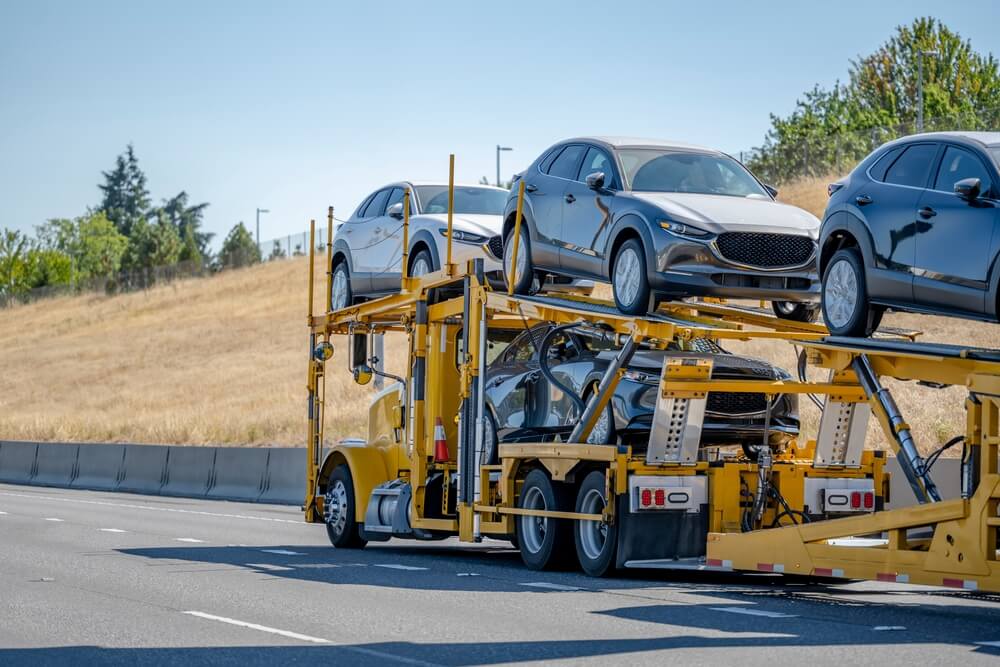
In 2025, Cerritos, California continues to stand out as a strategic hub for car shipping and vehicle logistics in Southern California. As an auto transport company in Cerritos navigates an increasingly competitive and tech-driven marketplace, understanding emerging industry trends has never been more important. From digital transformation to sustainability initiatives, the Cerritos auto shipping sector is experiencing a dynamic shift. In this article, we’ll explore data-backed insights and highlight key changes shaping the future of auto transportation in Cerritos and beyond.
The Power of Technology: AI and IoT Reshape Logistics
Technology is revolutionizing the auto transport industry. Artificial Intelligence (AI) is being leveraged for predictive maintenance, dynamic pricing models, and optimized routing systems. The Internet of Things (IoT), particularly telematics, enables companies to track vehicles in real time, enhancing transparency for both clients and operators. These tools not only improve operational efficiency but also reduce downtime and unnecessary mileage.
According to Automotive Logistics, automation and digitalization are accelerating across the transport industry, with AI now playing a central role in fleet management and predictive route planning. In Cerritos, carriers that implement AI-driven systems can offer faster, safer, and more reliable shipping services.
Green Is the New Standard: Sustainability in Auto Shipping
Environmental regulations in California are among the strictest in the nation, and Cerritos-based carriers are taking note. Many local companies are shifting to hybrid or fully electric transport vehicles. These greener fleets are not only reducing carbon emissions but also aligning with statewide sustainability goals.
In addition, route optimization software is helping minimize fuel usage, while carriers are adopting strategies like load consolidation to reduce the number of trips required. Eco-conscious consumers are increasingly choosing shipping companies based on their environmental footprint, making sustainability a competitive advantage in Cerritos.
EV Transport: A Rising Challenge and Opportunity
Electric vehicles (EVs) are no longer niche; they are mainstream. The growing market for EVs from Tesla to Rivian has created a unique logistical challenge for auto shippers. EVs require specialized care during transport due to battery sensitivity, weight distribution, and the need for climate-controlled trailers in some cases.
Auto shippers in Cerritos are adapting by training staff in EV handling protocols, investing in compatible loading equipment, and creating charging solutions for long-haul shipments. As EV adoption grows, Cerritos-based shipping firms are positioning themselves as specialists in this complex but lucrative sector.
Digital Experience: Consumers Demand Seamless Online Access
Customer expectations have changed. Today’s clients want instant quotes, easy scheduling, real-time shipment tracking, and immediate customer support. Companies in Cerritos that provide seamless digital experiences are outperforming competitors who lag behind in tech adoption.
Leading transport platforms now integrate AI chatbots, dynamic pricing tools, and automated document generation, which reduces human error and speeds up transaction times. Moreover, online reputation management through platforms like Google Reviews and the Better Business Bureau is becoming a vital part of consumer decision-making.
Market Resilience Amid Economic Shifts
According to recent data shared in Los Cerritos News, the car shipping market saw a slight dip in volume during the economic slowdown of 2024. However, 2025 has shown signs of recovery, with increased shipping activity linked to rising vehicle purchases and relocations.
The U.S. car shipping market, valued at over $10 billion, remains resilient. For companies in Cerritos, opportunities abound in niche markets such as snowbird transport to and from California, cross-country military relocations, and collector car transport services.
Challenges on the Road Ahead
Despite the promising outlook, the industry faces ongoing challenges. Fuel price volatility, driver shortages, and tightening federal regulations continue to impact the cost and complexity of operations. Additionally, global supply chain disruptions such as delays in vehicle manufacturing and parts availability can influence shipping schedules and consumer expectations.
For further guidance on moving best practices and regulations, consider consulting authoritative sources such as the Federal Motor Carrier Safety Administration (FMCSA). They provide comprehensive information on interstate moving regulations, consumer rights, and safety guidelines.
Conclusion: Data-Driven Decisions and Future Readiness
The Cerritos auto transport sector is undergoing a period of accelerated change, driven by innovation, consumer demand, and policy shifts. Companies that prioritize sustainability, embrace digital transformation, and adapt to vehicle technology trends like EVs will lead the pack.